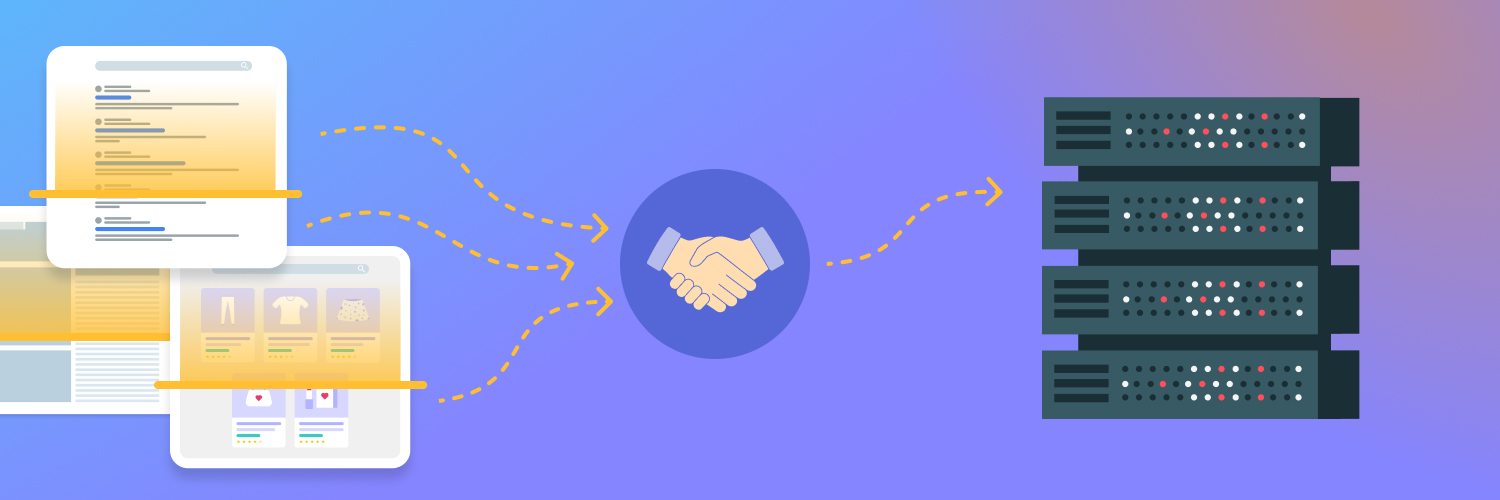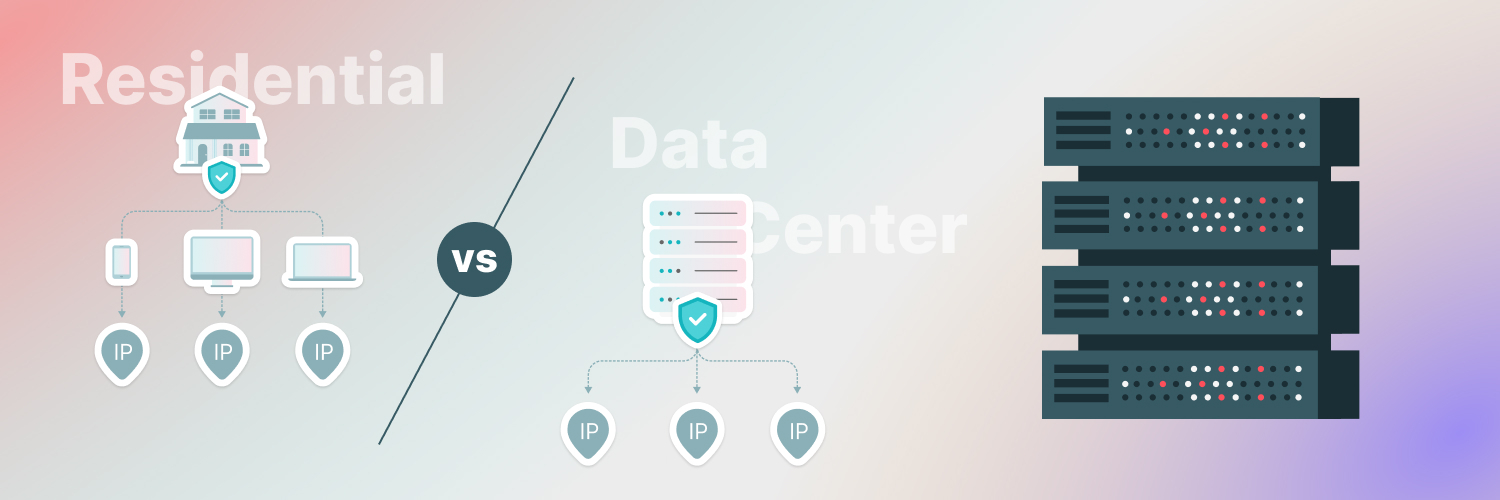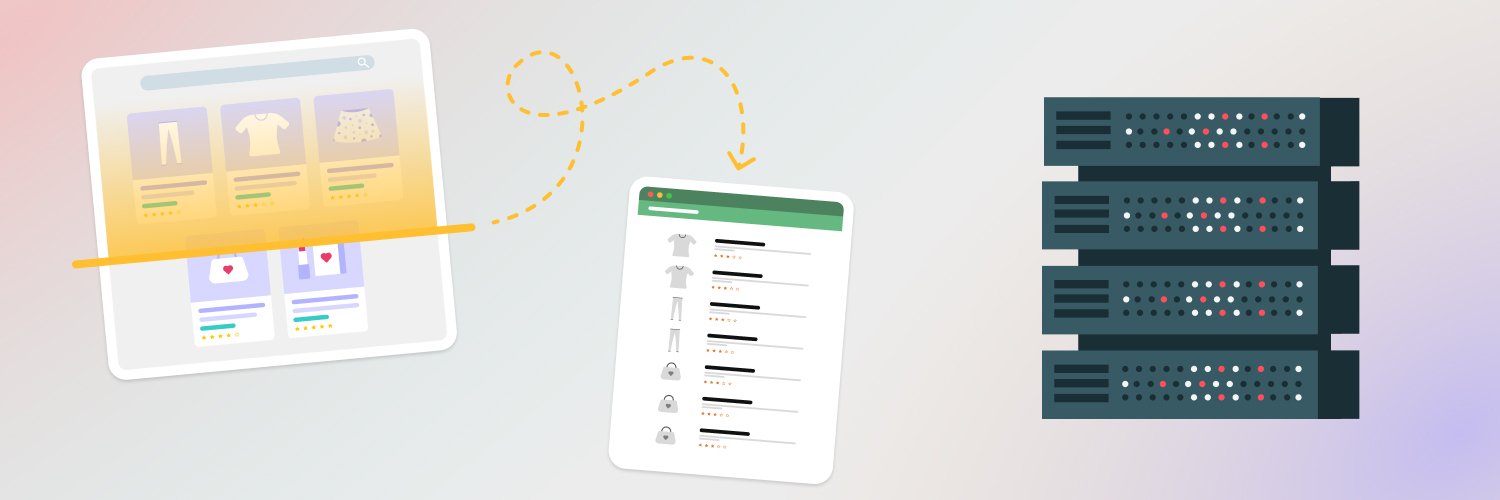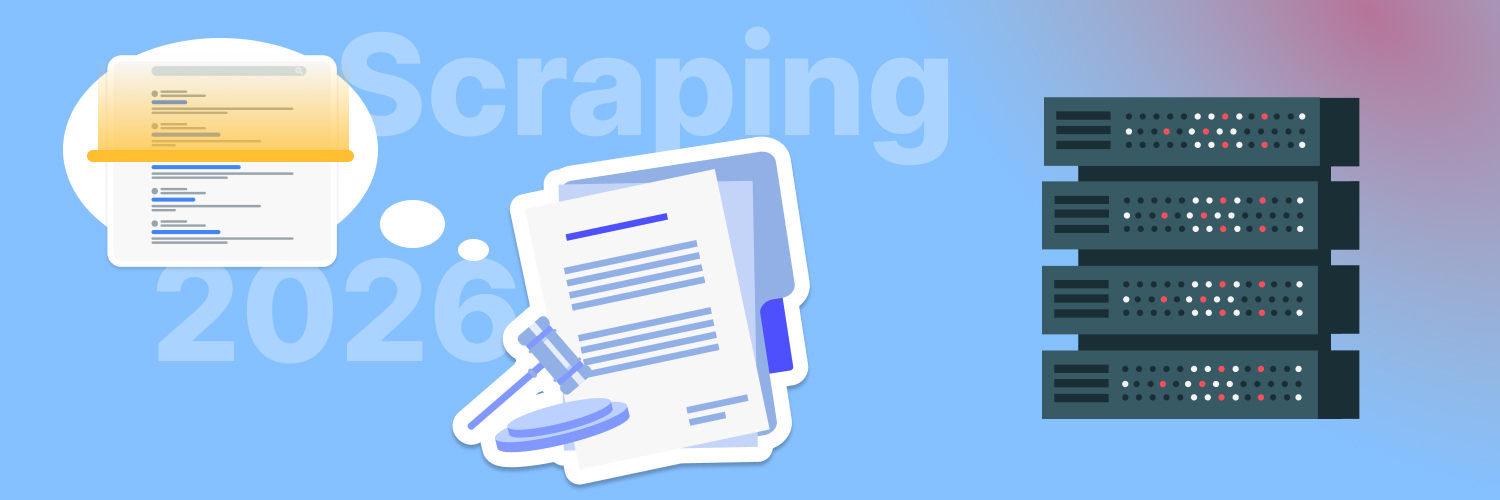Big Data: How to Use Proxies to Scrape Data From Public Data Sources
The web is full of valuable information: business information, research materials, case studies, performance data, and more. With more than two billion websites live online today, it’s more important than ever to focus on data-driven strategies.
Data-driven companies that use analytics and insights to create a competitive advantage and surge businesses toward their revenue goals. Research also shows that organizations leveraging customer behavioral insights can outperform their competition by 85% in sales growth
Being data-driven is about more than just revenue. Embracing the use of data and analytics can provide you with crucial insights into your industry, allowing you to make more informed and strategic decisions.
While studies show that data is critical, there’s a near-constant stream of content on the Internet. With more and more information added each day, it’s impossible to sift through the data manually to find what you need. That’s where web scraping with proxies comes in.
Scrape at Scale With Chromium
Playwright-compatible. Self-hosted. Built for real infrastructure.

Web scraping, or data scraping, is a means of extracting public data from different sources online. Using residential proxies, this automated process captures valuable data that you can later break down for analysis.
Here’s everything you need to know about scraping public data sources ethically using residential proxies.
Why Are Public Data Sources Important?

It’s no secret that publicly available data sources, or open data, are more widespread than ever. From government databases to public websites, there’s an overwhelming amount of information at your fingertips.
Public data is important for a lot of reasons — including general transparency and accountability between the public and big institutions. But it’s especially critical for businesses. Companies around the globe are leveraging public data sources to make informed business decisions.
Many businesses point towards big data as one of the most important factors that brought their companies into the digital age. With public data, you can analyze information that will help you better understand your target audience, your competition, and the industry as a whole.
While data is critical, the fact remains that there’s way too much to effectively sort through. With a vast sea of information, it’s hard to determine what’s useful and what’s not. This can quickly become a costly and time-consuming venture.
Many businesses get stuck on what’s known as “data hoarding” — trying to capture every available piece of public data rather than identifying and extracting what’s most valuable to them.
That’s where web scraping comes in handy.
How Does Web Scraping Fit Into Public Data?

Web scraping is typically used by businesses who want to more effectively collect and analyze the vast amount of publicly available data. From lead generation to market research to price monitoring, you can then use this data to make smarter business decisions.
How exactly does it work? If you’ve ever copy-pasted text from a website, you’re essentially scraping information — just on a small, manual scale. This could quickly become a mind-numbing task, not to mention practically impossible when you look at the scale of the Internet’s seemingly endless depths of information.
Unlike manual extraction, web scraping makes use of intelligent automation, retrieving hundreds or even millions of data points from all corners of the internet.
In order to scrape this data without being detected — and potentially blocked — by these websites, you’ll need to make use of proxies. Proxy servers send the data requests on your behalf, using their own unique IP address, making you appear anonymous to the website.
Datacenter proxies offer IPs of servers housed in data centers. These are the most common and affordable way to route your request through another network. However, they’re more likely to be detected by these websites and flagged as bots.
That’s why residential proxies are essential to web scraping. Unlike datacenter proxies, these proxies offer IP addresses from real private residences, routing your request through a residential network. While they’re more expensive upfront, they’re much less likely to get banned by a website while web scraping.
How Can Scraping Public Big Data Sources Help Your Business?

Scraping free public data sources is gaining popularity. This comes as no surprise. Web scraping can provide value that nothing else really can: the best sources of public data in a structured format.
But why is something like this so valuable in the first place?
Web scraping allows businesses to transform the way they operate from top to bottom. From executive decisions to individual customer experiences, scraped public data has the potential to revolutionize your business model.
Here are just a few of the many ways you can make use of web scraping big data public sources:
1. Competitor monitoring
To keep an eye on your competitor’s strategies, you can pull public data to reveal important insights on anything from pricing to advertising to social media strategy.
Getting this kind of first-hand information about the market allows you to adjust your own strategy — setting dynamic prices and tracking product trends — to optimize revenue.
2. News research
If your business depends on information from the daily news cycle, scraping news data is an effective way to stay on top of timely news analyses. Whether you’re assessing public sentiment or making investment decisions, extracting this data can help you monitor, collect, and sort through the most relevant data from your industry.
Scrape at Scale With Chromium
Playwright-compatible. Self-hosted. Built for real infrastructure.

3. Lead generation
Every sale starts with a lead. In a 2020 report, Hubspot found that 61% of marketers said generating traffic and leads was their primary challenge.
Evaluating public data sources allows you to access lead lists from across the Internet. From directories to social media sites, scraping can help you quickly and easily gatherlarge numbers of qualified leads.
4. Social media examination
Data scraping can also be used as a social listening tool. Social listening means extracting real-time data from social media platforms. Using metrics like comments, engagement, retweets, and others, you can pull quantitative data that can tell you about brand affinity and more.
This has many different applications, including:
- Research for online content
- Pricing comparison for travel sites
- Conducting market research
- Studying product reviews and other data
Web Scraping Public Data Sources with Proxies

It’s clear that the Internet is a data goldmine for any business or entrepreneur — and there’s no shortage of ways to use this to your advantage. But when it comes to extracting this data, you may run into some obstacles.
Many large websites have software in place that can detect suspicious requests. If it identifies a large volume of requests from one IP address, the site might start to limit access to data, or even block the data extraction process.
Proxies offer a way around these rate limits. A proxy allows you to route your data request through their third-party server. This means that the website you’re scraping won’t see your IP address, but rather the IP address of the proxy.
Using proxies has a few main benefits for web scraping:
- It hides your machine’s IP address
- It avoids rate limits on the target site
- It can make requests from a particular location or network
- It allows you to circumvent IP bans
The best way to do this is through a residential proxy. Using an IP address that belongs to a real homeowner and is attached to a physical address, residential proxies allow you to mimic real human behavior online. Residential proxies tend to be more efficient at overcoming bans, since the connection will be seen as coming from a genuine residence, as opposed to a bot from a data center.
Harnessing residential proxies will allow businesses and entrepreneurs to capture and collect as much relevant data as needed.
The Ethics of Collecting Public Sources of Data with Proxies

While collecting data from public sources of data can have all kinds of benefits for your company, not all providers are made equal.
Proxies fall under public data gathering practices, allowing you to safely circumvent server restrictions to collect data. However, not all proxy providers follow the ethics of scraping public data.
At Rayobyte, we’re committed to maintaining a strict standard for sourcing proxies ethically and transparently. Our code of ethics provides a framework for the work that we do with our customers:
- Only scraping publicly available web pages
- Requesting data at a fair rate
- Respecting privacy issues related to the source website
- Procuring proxies in an ethical way
What does ethical proxy sourcing look like?
The residential proxy system operates first and foremost around consent. Users of our Software Development Kit (SDK) get the option of using a premium, ad-free application if they allow us to use their device as a proxy when idle.
Instead of burying the consent form in the terms of service up-front, we check in each month, reminding them that their device is being used as a proxy and giving them the option to opt out if they’re no longer interested. They also have full control over the domains for which their device can be used. All consenting users are paid directly for the use of their device’s IP address.
We hold our customers to the same high standard for ethical proxy use. All residential customers must prove that they’re scraping data for a legitimate, business purpose.
Through our rigorous vetting process and continuous monitoring, we ensure that all parties are using proxies in a way that’s consistent with our values of honesty, transparency, and ethics.
Scrape at Scale With Chromium
Playwright-compatible. Self-hosted. Built for real infrastructure.

The Bottom Line
Public data sources offer a limitless pool of valuable information, but getting hold of that information is another challenge entirely. If you’re looking for ways to push your business into the future with data-driven solutions, edproxies are a must-have tool.
As the top ethical proxy provider for enterprise scraping solutions, Rayobyte is here to help you get the data you need the right way. If you need access to public data sources, we can get you there. Take a look at our packages or become a beta tester for our rotating residential proxies today.
The information contained within this article, including information posted by official staff, guest-submitted material, message board postings, or other third-party material is presented solely for the purposes of education and furtherance of the knowledge of the reader. All trademarks used in this publication are hereby acknowledged as the property of their respective owners.



